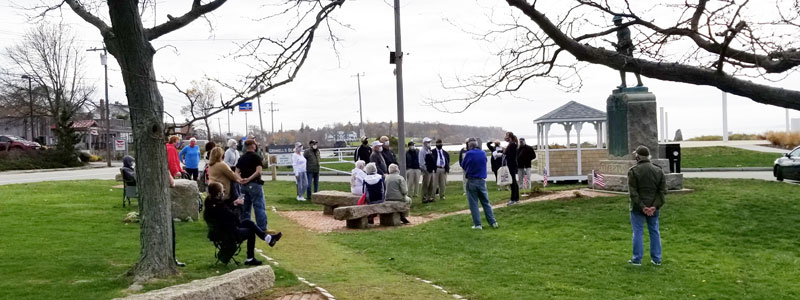A Complicated Relationship with Military Service
This isn’t a political post, so take this observation as just an objectively relevant observation: Joseph Biden and Donald Trump have very similar records when it comes to avoiding the war in Vietnam, yet for one, it was a political liability, and for the other, it was not.
At least since that war, our society has had a complicated relationship with military service, creating opposing clichés. The coward-who-shirked-his-duty faces off against the wise-youth-who-eschewed-immoral-conflict. The soldier-as-damaged-lunatic faces off against the soldier-as-bedrock-of-civilization.
When it suits us, our society lionizes soldiers, and when it suits us, we demonize them (well, some of us do). It all depends upon your perspective, even down to how you feel about a specific circumstance at a particular moment in time. The fact of having served or not having served is either a stone to throw at somebody you don’t like or flag to wave for somebody you do.
Even if everything weren’t political in our time, this would be understandable. War is a scary thing, but bravery, discipline, service, and adventure are valuable. That generates discordant contrast.
Those of us born after the Vietnam Era can only infer this to have been the case, but it seems like there was once a day when our society had a healthier perspective. Across all socio-economic categories, some people joined the military, and some didn’t (which is different than saying that some people had no choice but to join and others were privileged). For those who served without seeing conflict, it was both a blessing and a missed experience.
At a Veterans Day event this morning in Tiverton (which would have been better attended not long ago, with or without a coronavirus scare) Historical Presentation Advisory Board member Susan Anderson asked the veterans in the audience to state their service. Although it was difficult to hear through their masks, one striking feature of their statements came through clearly: their humility. Whatever they had done, they moved quickly to praise those who had done more, had sacrificed more.
Under the shadow of COVID-19, a 2004 essay of mine has become newly relevant. People pursuing a medical cure for aging were speculating that such a thing would lead us to value life much more. But perhaps, instead, it would make us more vulnerable to those who did not value other people’s lives, or at least who were willing to manipulate our fear of losing our own. If death isn’t just part of life, it becomes a more-frightening event that can sometimes happen to us.
As we move toward that attitude, the risk of military service seems much greater, and many will see it as something that unfortunate people were unable to avoid. Veterans’ humility shows the healthier view that others risked and lost more, along with a recognition that risk (and even loss) can come with reward.
Individuals and nations benefit from the lessons that come from putting ourselves in harm’s way from time to time — lessons about the fleetingness of life and lessons about the thrill of risk and lessons about cooperation and self-sacrifice to achieve a common goal and lessons about the complicated emotion of deriving benefit from something that helps others, of being grateful for experiences that generate gratitude in others. It would also be to the health of the nation if every demographic group had lives on the line depending who was making decisions for the country.
On Veterans Day, we could do worse than to spend some time thinking about the role of veterans, and of becoming veterans, in our society. Those who have served should feel as if it is their day to be valued and also to reflect on the good they did simply by saying “yes” to the call. And those of us who have not served should express our gratitude and also reflect on our reasons for not doing so, as well as how we might make up for that deficit for our nation and ourselves.



